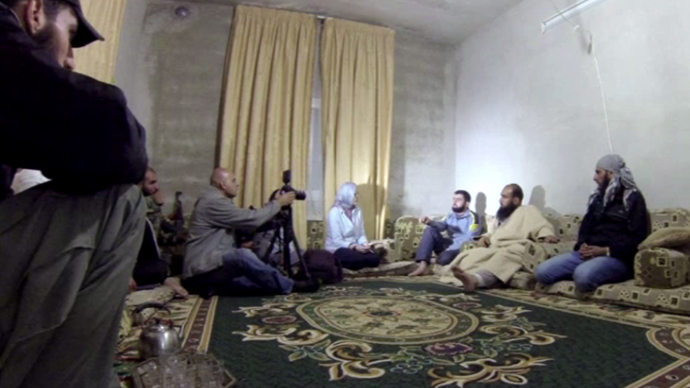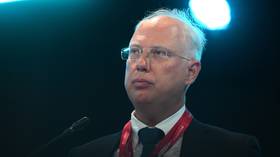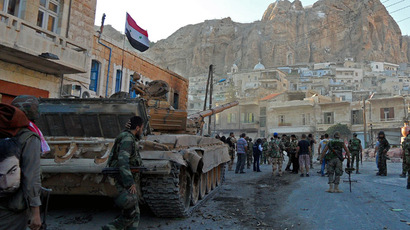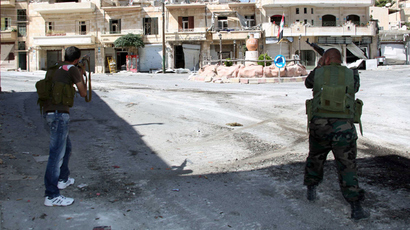Besieged on their own land: RT goes to rebel-held Syrian town of Yabroud
The locals in the Syrian town of Yabroud are paying a high price for antagonistic opposition groups controlling their land. They live in fear and payhigh taxes to provide the Islamists with food and arms, RT’s Maria Finoshina reports from the scene.
The town of Yabroud near the Syrian-Lebanese border is just 80
kilometers from Damascus, but it's more like a state within a
state, with its own police, security forces and even an army.
The wall and fences around the town are decorated with the three
stars graffiti, which means that the territory is controlled by
the Free Syrian Army and forces loyal to the government can’t
enter.
In 2011, the Yabroud residents were among the first to support
the campaign against Syrian president Bashar Assad. Since then it
has been cut off from the capital Damascus and run by the rebels.
Maria Finoshina says she had to cover her head when she entered
the town as it is governed under Islamic law.
“For two years Yabroud has been liberated. We have civil and
local councils. We have sharia law tribunals and normal courts.
We have muftis and lawyers - they carry out justice. We run the
town by ourselves,” Majed Jumaa, Yabroud Revolutionary Civil
Council president, told RT.
“The army can’t enter. And even if they try – we are ready to
resist and defend our land,” he added.
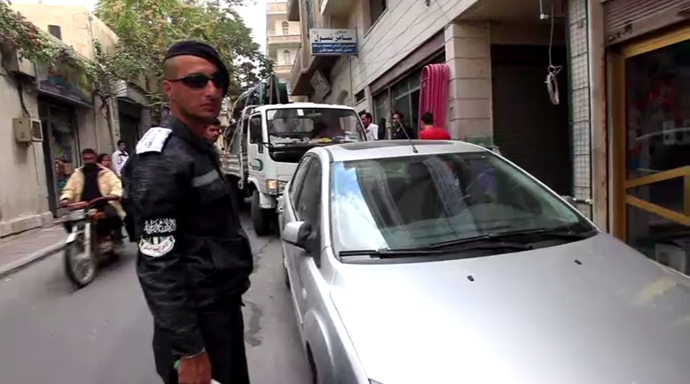
The self-styled Free Syrian Army fighters don’t cooperate with other militants, functioning instead as an autonomous armed brigade. They live in abandoned houses, sleep and pray together and claim fighting Bashar Assad is their only goal.
Twice a week, the rebels hear an Islamic lecture from a young
man, who everybody calls the Sheikh – he’s taken part in the Hajj
pilgrimage to Mecca and studied The Koran in Saudi Arabia.
“Every Monday and Thursday we discuss the revolution, the
latest military developments as well as our daily routine. We
discuss what's halal and what's proscribed or forbidden by
Islam,” the Sheikh said.
When asked if they are connected to Jabhat Al-Nusra, an
Al-Qaeda-affiliated radical Islamic group openly operating in
Syria, the rebels said: “No, no, no, no!”
“The Al-Nusra is linked to the outside, any decision they take
comes from outside. They follow Al-Qaeda and, for decisions, they
revert to their Amir or even Ayman al-Zawahiri, Al-Qaeda’s
leader. We have normal relations with them,” one of the FSA
fighters explained.
The Yabroud area, supposedly run by opposition fighters is, in
fact, in the hands of a large number of separate brigades, armed
groups or just lone rebels with different ideologies.
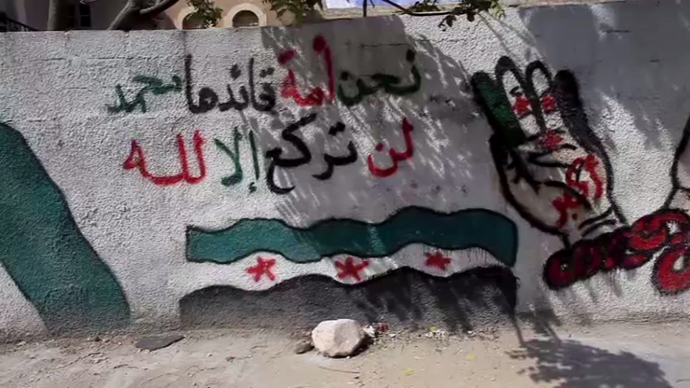
The rebels aren’t only fighting Assad, but also compete with each other – even for media attention - being among journalists is considered to be prestigious.
But for some militants the press is just a source of income, with at least 15 foreign journalists currently being held hostage in Syria. The latest incident, on Thursday, saw a team from Sky News Arabia going missing.
With so many rebel groups in their town, the Yabroud’s locals – especially, those of Christian faith – are paying the bills for the opposition’s food and weaponry.
“We as Christians pay so-called taxes. This is our input into society. We go to church and pay taxes. Muslims also pay,” Wassim Bara, chief of the Revolutionary Tribunal, explained. “We pay for the internal security brigades and for relief, aid and courts. They appeared because of the revolution – and they need money.”
Yabroud's Christians families are forced to pay a tax $35,000 per month to the Islamist rebels, Patriarch Gregorios III, the leader of the Melkite Greek Catholic Church, said earlier this week.
Local dentist, Hani Akil, said that there’s “a shortage of food and everything,” while he and other residents “feel besieged” in their own town.
With over 100,000 dead in two years of civil war in Syria, the situation in Yabroud indicates that factions involved in the bloody conflict and their goals are increasingly diverging.
